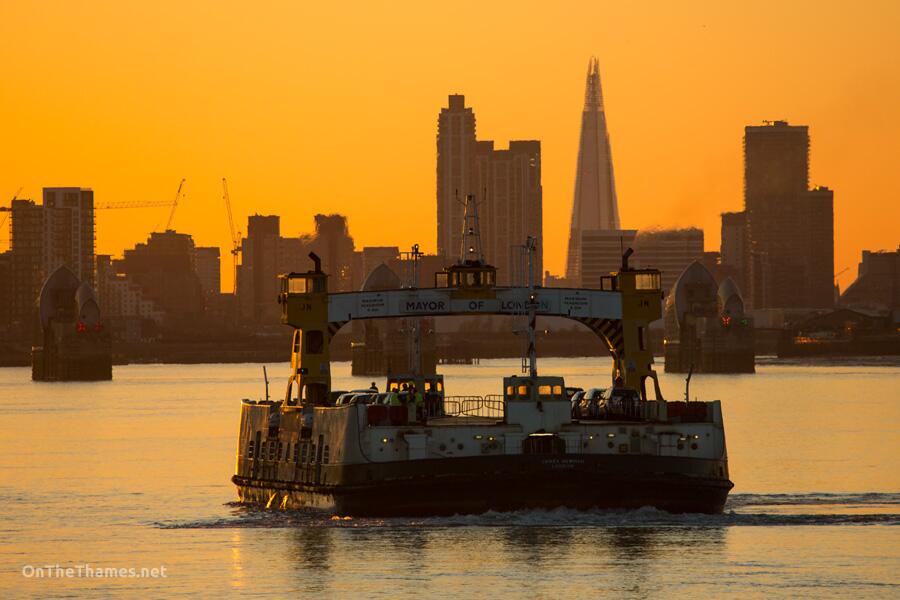THE LAST river crossings on the current fleet of Woolwich ferries will take place on Friday 5th October.
The popular foot and vehicle crossing between Woolwich and North Woolwich will be out of action from Saturday until late December while work takes place on the piers to accommodate the brand new boats ordered by TFL.
For local people it will be an emotional goodbye to the current generation of vessels that have worked the route for over fifty years.
Named after the politicians John Burns, Ernest Bevin and James Newman, the ferries have been mainstays of the river for over half a century.
Their final journey will be considerably longer than their usual 1500ft route: under tow across the English channel to Le Havre to be broken up and recycled.
Tug TSM Kermor, playing the role of hangman, arrived on the river on Saturday to collect John Burns, scheduled to be the first of the trio due to leave.
The departure was originally fixed for Tuesday (2nd) but uncertain weather provided several stays of execution and a new departure time of 0845 on Friday 5th October has been set.
(Check PLA departure list for up to date times as departure date has changed often)

Ernest Bevin crossing the river

Sun set behind James Newman

John Burns at Tower Bridge for the service’s traditional annual charity trip.
History of the Woolwich Ferry
There has been a river crossing on the river at Woolwich since medieval times but the Free Ferry service was established by the Metropolitan Board of Works and opened in March 1889.
The first boats to operate the service were the paddle steamers Duncan, Hutton and Gordon. In the 1920s, the London County Council’s new purpose-built vessel The Squires joined the service with the Will Crooks and John Benn coming along in 1930.
The age of paddles and steam came to end when the current fleet of double-ended diesel-powered boats entered service with John Burns first in April 1963. They were built to accommodate up to 1000 passengers and 200 tonnes of vehicle traffic.
TFL’s two brand new ferries – Ben Woollacott and Dame Vera Lynn – have been purpose-built in Poland. They have a diesel-electric hybrid propulsion system which TFL says will make them more fuel efficient, make less noise, and produce fewer emissions.

New boat Ben Woollacott. Image: TFL.



